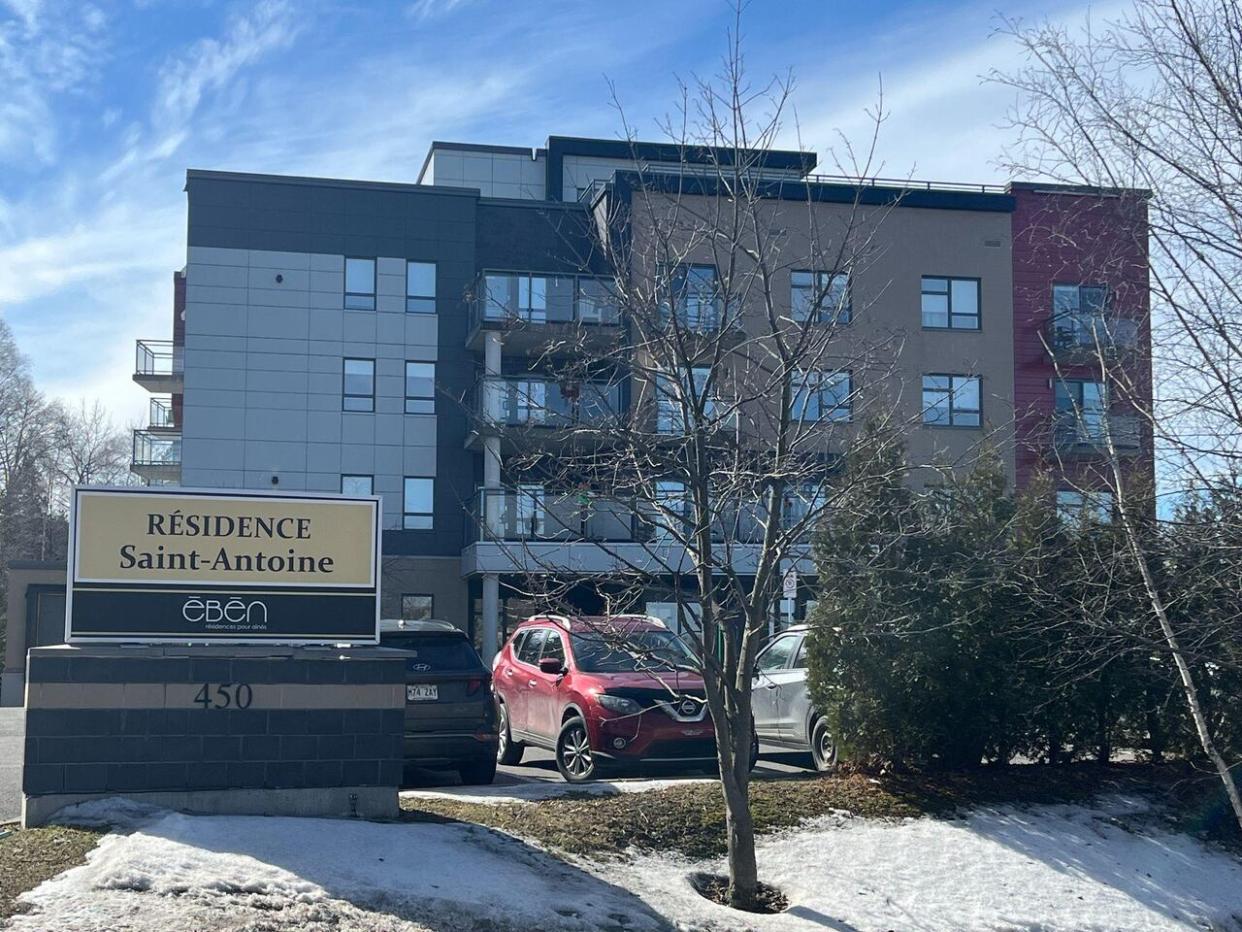Elderly woman found dead on balcony of private seniors' home, Quebec coroner investigating

A Quebec coroner is investigating the death of a 79-year-old woman who was found dead on her balcony at the Résidence Saint-Antoine, a private seniors' residence (RPA) located in Lévis, Que.
The woman, Réjeanne Jean, went out on the balcony during the night and was only found the next morning, March 1, by RPA staff, according to Radio-Canada.
Jean's daughter, Caroline Desrosiers, says her mom was cognitively impaired and had been living in a secure unit in the residence for less than a year.
She says her family thought they had found her a safe place to call home.
Lévis police received the emergency call from staff at 5:26 a.m. and the residence's management called Jean's children to inform them of the death.
Jean's daughter had just arrived at work when she got the call.
"We have questions. We expected her to pass within a year, but we didn't think she'd freeze to death on a balcony. We're really angry," said Desrosiers.
She doesn't understand how her mother could have had such easy access to a balcony in the middle of winter, on a night when temperatures reached -17.5.
Desrosiers said while her mother did not have problems with her mobility, her cognitive issues were severe and she could get confused.
Résidence Saint-Antoine is an RPA for independent and semi-independent seniors and seniors with Alzheimer's. It has 128 units, nearly half of which are for residents with reduced autonomy.
The health authority for the Chaudière-Appalaches region says it will co-operate with the coroner's inquiry currently underway.
"The details surrounding this sad situation are being analyzed by our risk management department, which will issue recommendations if needed," it said in statement.
Résidence Saint-Antoine is owned by the ÉBÈN group and was previously known as Manoir Liverpool. In a response to Radio-Canada, ÉBÈN said it has offered its condolences to Jean's family.
Paul Brunet, president of the Conseil pour la protection des malades, which provides information and support to patients, says he wonders whether the residence was well-suited to Jean's condition.
He says the health-care network can put pressure on some establishments to take on residents for which they may not be well equipped.
"It's quite possible that this person should not have been housed there," said Brunet.


